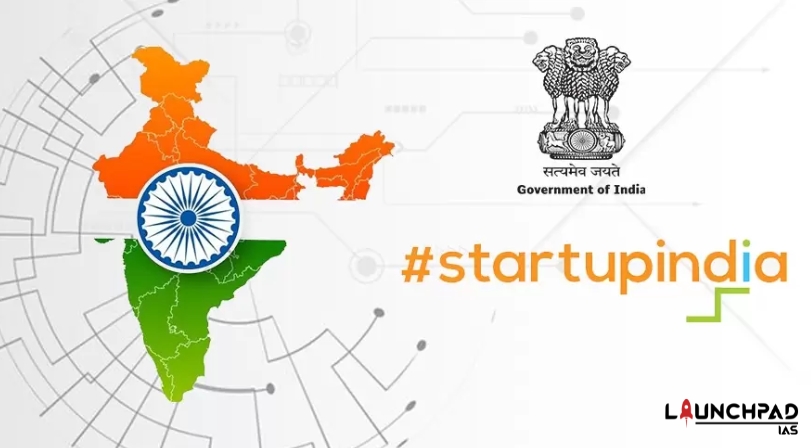About:
- Startup India Scheme is the flagship initiative of the Government of India to create a conducive and favorable ecosystem for innovations and start-ups to achieve sustainable growth along with large-scale employment generation.
- The Startup India Scheme is being implemented and coordinated by the DPIIT under the Ministry of Commerce and Industry.
Various Benefits Under the Startup India Scheme
The start-ups registered under the Startup India scheme are entitled to the following benefits:
- Self-certificate- allowed to self-certify compliance with 6 labor and 3 environment laws. No inspection regarding the same will be conducted for the next 3 years.
- Tax exemption- These start-ups will enjoy tax exemption under the following conditions:
- On investment made by incubators of higher value than the market price.
- On investments made by angel investors.
- Tax holiday for first 3 years or until reaching a threshold limit.
- Single window clearance– The eligible entities can register themselves through a single form by using the data of the Startup India Mobile App. The Startup India Mobile application also provides single window clearance for various other purposes.
- Patent protection.
- Relaxed norms for public procurement– The initiative provides a level playing field for start-ups and experienced entrepreneurs.
- Incubator setup- The scheme also includes an incubator module that endorses the Public Private Partnership (PPP) and gives the start-ups the required knowledge and support.
- Networking options– Start-ups can meet with other Startup stakeholders on national and international levels. These start-ups are provided opportunities for fund-seeking and learning from other start-ups by providing them with different and broader perspectives.
- Government tenders– Start-ups are provided with the incentive for receiving government tenders. Tenders are provided without any prior experience with the start-ups.
- Innovation and research– The Startup India program encourages Innovation and Research among Aspiring entrepreneurs to unleash the full potential of Indian start-ups.
Funding Support and Incentives
- Providing Funding Support through a Fund of Funds with a Corpus of INR 10,000 crore.
- In order to provide funding support to startups, the Government will set up a fund with an initial corpus of INR 2,500 crore and a total corpus of INR 10,000 crore over a period of 4 years (i.e. INR 2,500 crore per year).
- The Fund will be in the nature of Fund of Funds, which means that it will not invest directly into Start-ups, but shall participate in the capital of SEBI registered Venture Funds.
About the Startup seed fund:
- The Fund aims to provide financial assistance to startups for proof of concept, prototype development, product trials, market-entry, and commercialization.
- 945 Crore corpus will be divided over the next 4 years for providing seed funding to eligible startups through eligible incubators across India.
- The scheme is expected to support an estimated 3,600 startups through 300 incubators.
- Nodal Department: Department for Promotion of Industry and Internal Trade.
Why the scheme has not been able to meet the expectations?
- A tax break of three years has been given in the scheme.
- Anyone who has business sense knows that only a few start-ups will be profitable in the first three years and so this handful can avail themselves of the tax break.
- When it comes to the ‘fund of funds’ under the initiative, Rs500 crore has already been provided as fund corpus in 2015-16 and Rs. 600 crore has been earmarked for 2016-2017.
- Cumbersome procedures to access funds from the Rs. 10, 000 Cr. corpus have, however, made the plan a non-starter and Sidbi has committed only Rs. 129 crore to VCs so far so the progress has been slow.
- Under the scheme, the bank only puts in 15% of the total corpus, while it is the VC that has to bring the remaining 85% to the table. And, this year, VCs have struggled to raise that kind of money—as a result, funding has almost halved.
- There is also the government’s requirement that participating investors have to be registered with the Securities and Exchange Board of India.
- But some of the biggest VCs aren’t, and the government has essentially shut them out.
- There is still no exemption is MAT (Minimum Alternate Tax) which could’ve helped businesses to cut losses.
- A lot of entrepreneurs and investors think that demonetization and the lack of exits in start-ups by investors are adding to the gloom;
- After demonetization, the investors are afraid to exit their investments due to a slump in the IPO (initial public offering) market.
- The scheme sets up an ‘Inter-Ministerial Board’ led by the Department of Industrial Policy and Promotion which ‘validates’ the innovative nature of an enterprise, thereby qualifying it as a start-up – an involvement of government in this ecosystem that is hardly desirable.
- It also exempts start-ups from inspection under a fixed number of labor laws — six to be specific.
- But, there are about 45 laws at the central level and about four times this number at the state level.
- The Centre needs to work with the States to ensure a smooth rollout of the benefits under the Action Plan and avoid discord between policies at the two levels.
- The Action Plan requires an enterprise or partnership to be innovative by developing and commercializing a new product or service — a step to promote truly innovative ideas.
- But it institutes an inter-ministerial body led by DIPP to examine whether an enterprise is ‘innovative’.
- It also requires a ‘recommendation’ from an incubator set up by the government or be supported by an incubator in a post-graduate institution recognized by the government — this need for validation and recommendation goes against the very steps the Action Plan takes to reduce government involvement.
- This additional layer of bureaucracy could slow down the starting-up process and needs to go.


